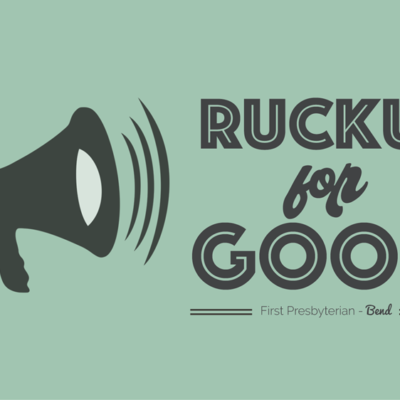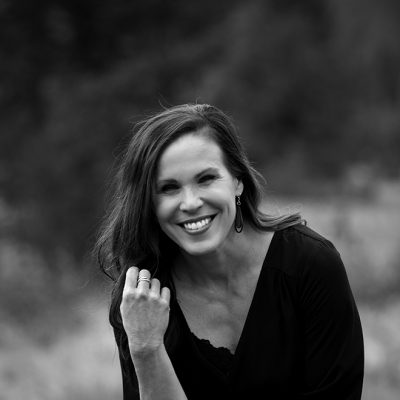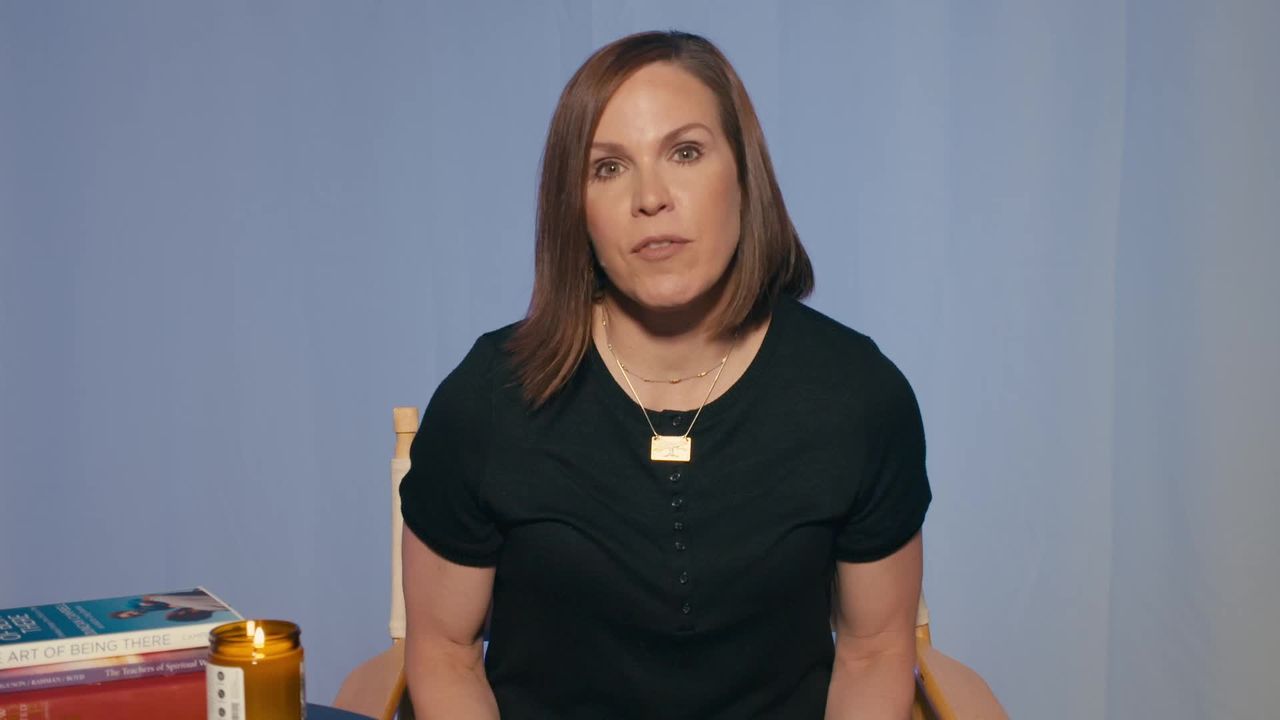May 21st: Dismantling Racism, with Rev. Kally Elliott.
A Part of the Series:
Rev. Kally Elliott
Other Articles in:
TRANSCRIPT:
When I was in seminary in Atlanta, my husband, two dogs and I lived in a neighborhood, composed mostly of black and brown neighbors. I’ll never forget the day when standing in the driveway of the family next door, I asked the three children who lived there along with a few of the other neighbor kids, what they wanted to be when they grew up. It’s a question I was asked frequently as a kid. And depending on the day, my answers varied from being a veterinarian to a news anchor woman.
Some days I thought I might be a doctor, but most days, I was sure I would be a leading lady on Broadway. And while being a star on Broadway was probably out of my reach. The rest of the occupations were all reasonably attainable for me.
But when I asked these neighbor kids what they wanted to be when they grew up, their answers varied from a shrug of the shoulders, to being a Marta bus driver, or a clerk at Kroger. Not one of them assumed they would grow up to be a doctor or a teacher or a veterinarian or anything else I would have assumed myself to be. Even while I understood why these were the aspirations of these children, I remember being taken aback.
Their parents, many of whom I knew and interacted with daily, worked two jobs, often as a store clerk, a dishwasher, or a childcare worker. Life was hard struggle was their reality. It was a daily life of their children. Nobody they interacted with on a regular basis, except maybe their school teachers worked in other professions.
What I was encountering was structural racism. These kids had not seen their parents, their relatives or friends work as professionals, because the very structures and institutions that had equipped me to be whatever I wanted in life, did not do the same for their families, and in fact, in many ways worked against them. Our neighborhood in Atlanta, had been a victim of redlining.
Redlining occurred shortly after the Great Depression, when the government made maps outlining entire neighborhoods, usually neighborhoods where people of color made their homes in red, outlined in red black neighborhoods were deemed undesirable neighborhoods for investing, meaning that banks would not make loans to people in these neighborhoods. For decades, banks and insurance companies used these maps to deny black people loans and other services based purely on race.
Now historically, owning a home and getting a college education is the easiest way for American families to build wealth. But the grandparents of my neighbor’s children couldn’t get a loan to buy a home because they lived in a black neighborhood. At that time, colleges could also deny access to people of color because of their race, keeping my neighbors grandparents from getting a college degree. without a college degree, and without a home of their own. It was nearly impossible to build wealth.
Meanwhile, my grandparents who were white, were able to get alone, they were able to buy their house actually multiple houses as my grandfather moved the family around for his job as a scientist. My father and his brothers were able to go to college earning advanced degrees, which in turn benefited me and became an expectation of an to for me. Thus, I dreamed of being a doctor or a lawyer or a professor or a news anchor woman or a Broadway star, my neighbor’s dreamt of being a clerk or a bus driver or a dishwasher. There’s nothing wrong with being a clerk or a bus driver or a dishwasher.
But those jobs will not make the money that a doctor or lawyer or even a teacher will make leaving those working in those roles struggling just to make ends meet.
When I saw the preaching schedule, and my name next to structural racism, I have to admit that I almost bowed out, suggesting I preach on something a bit easier, lighter. In our day and time when our country is so divided, it’s intimidating to take a stand. I worry I don’t understand structural racism well enough, or that I will say the wrong thing. I know I have biases, and I am sure they will, they will rear their ugly heads as I speak. When my oldest child found out that I was preaching on racism, he looked me up and down right there in our kitchen as he prepared himself a plate of Dyno nuggets, and said to me, you are preaching on racism? Don’t you realize you are a white woman living in Bend Oregon, possibly one of the whitest cities in America? As if a 20 year old eating a plate full of Dyno nuggets has any room to judge?
Yeah, I replied, I know. I’m terrified, I will say the wrong thing. But as a follower of Jesus, I am called to speak up to take a stand. I’m called to name and acknowledge the biases and racism that dwells in me. And to ask for forgiveness. We don’t change what we cannot or will not name. We don’t heal. What we don’t acknowledge is sick. There is a term in the mental health world anosognosia. It’s a condition where you can’t recognize health conditions, or problems that you have. Experts commonly describe it as denial or deficit or lack of insight. anosognosia keeps sick people from getting needed treatment or medication from healing their illness.
We’ve heard the stories. We know white people enslaved people of color. We know we massacred indigenous people, even in the name of Jesus. We know how we segregated and redlined and oppressed people of color and how many of these practices still occur today. And yet, how many times have I heard? Yes, but I didn’t do any of those things. I shouldn’t have to pay for the things that my ancestors did centuries or decades ago. But people of color are still paying for the things my ancestors did to them centuries ago, decades ago.
Our instinct seems to be to bury our heads in the sand to deny how the sin and yes it’s sin of racism has infected us and made us sick. We have anosognosia about racism, especially structural racism and how it continues to infect us today.
In the story from Luke word was getting out about Jesus and the crowds were relentlessly pressing in on him to listen to his teaching and to receive healing. Jesus scans his surroundings and seeing two empty fishing boats on the shore of the lake. Jesus steps into one of the Empty Boats, asking Simon, a fisherman to take him out onto the water to get some distance from the crowds. Simon obliges, and Jesus continues teaching the crowds from his position out on the water.
As he wraps up teaching Jesus tells Peter to paddle out into deeper waters, and then to let down his nets there. Now Simon, a seasoned fisherman resists, we’ve been fishing all night Jesus and caught nothing. Jesus may be a healer and a teacher but he’s not a fisherman. Eventually, though, Simon relents and he takes the boat with Jesus in it out into deeper waters.
Then putting out their nets into this deeper water, the fishermen are shocked when the net It’s become so heavy, they begin to burst. Simon falls to his knees in response. And as he falls, the narrator of Luke adds Peter to his name. But when Simon Peter saw it the net, he fell down the knees of Jesus saying, Get away from me, Lord, for I am a sinful man.
We might expect Simon Peter to respond different differently, like, wow, I’m bringing you with me every time I go fishing Jesus. But instead, Simon Peter responds with a profound sense of humility. Get away from me, Lord, for I am a sinful man. Get away from me, Lord, I’m not worthy. I’m a mess. Get away from me, Lord, the thoughts that I think are so awful they would make you want to drink gin straight from the cat dish as my favorite author and Lamont is known to say, Get away from me, Lord, don’t expose me. Get away from me, Lord, I’m comfortable where I am.
Get away from me, Lord, I might drowned in those deep waters. But Jesus tells Peter, don’t be afraid. Now, when has it ever worked to tell someone who is shaking in her boots to not be afraid? I hate it when Jesus says do not be afraid because I am so often terribly afraid. Especially when it comes to extricating the sin of racism from my heart. If I acknowledge structural racism exists, and that I play a part in it, or if I admit that racist thoughts sometimes infect my mind, I will be stuck in an internal tug of war.
One side wanting me to stop it all back down and ignore and deny it. And the other wanting me to do something about it. Which means acknowledging that I have privilege as a white person, and I have power, and then giving some of that privilege and power away. Get away from me, Jesus, I like my privilege, and I like my power. But this is a call story. This is the story in which Jesus calls Simon Peter and the other fishermen to follow him. Not that they are ready to do so. They are clearly not. They’re simply cleaning their nets, their boats are empty, because apparently, they’re not even that good at fishing.
Jesus says, Do not be afraid. Because I don’t need your perfection. I don’t need you to be good at any of this. I simply need your yes. Do not be afraid because in these deep waters, you will learn to trust me. Do not be afraid for as you answer this, call my call, you will also learn what it means to be alive, what it means to encounter God and to others. You will learn what life is all about. Peter finally says yes. And in doing so he gives it all up. He leaves his family, his work his dreams, to go into the deeper waters to follow Jesus. I wish I could follow like Peter, just give it all up all the power I experienced as a white person. I wish I was brave enough to let it go. I want to believe in the kingdom of God. I want to believe that justice and healing will take place and better yet that I can be part of making it happen.
I want to follow Jesus but doing so means losing my life or giving up my power and my privilege. And I don’t want to lose my grip on what gets me ahead in this rat race of a world. Maybe I’m the only one who thinks that way. But considering the state of our country. I doubt it. I don’t like that I am this way. I wish I could be better, less apathetic, less fearful, more worthy of Jesus’s calling. But I’m not get away from me, Lord.
But what I notice here in This story is that Jesus doesn’t call Peter because he is worthy, or brave. Jesus calls Peter because his boat is empty. I mean, if Peter had been a good fisherman had been successful, knew what he was doing good at his job, his boat would have been full of fish, and Jesus wouldn’t have even been able to step inside his boat to begin with. But Peters boat was empty, devoid of the very thing that he depended on to sustain him fish.
And that’s exactly when Jesus climbs into his boat and calls him out to the deep waters. Speaking to those of us who are white, I think our boats are empty. And I believe Jesus is stepping into our Empty Boats and calling us out into deeper waters. It’s chaotic out there. In the deep waters. There are waves and storms and we may not we may not know how best to handle all that comes our way. Do not be afraid. Will we answer this call? Or will we deny our illness? Letting our power and our privilege grip us so tightly we gasp for air as we utter Get away from me Lord. I believe we can answer the call.
Do not be afraid. Amen.



